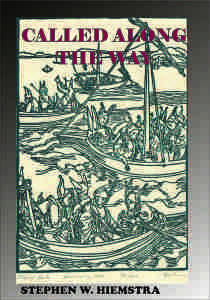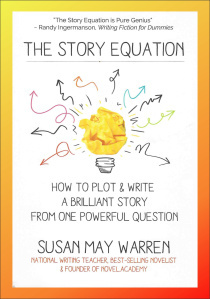Stephen W. Hiemstra's Blog, page 236
November 24, 2016
Thanksgiving Praise from Psalm 103, New Living Translation
 Let all that I am praise the LORD; with my whole heart, I will praise his holy name. Let all that I am praise the LORD; may I never forget the good things he does for me. He forgives all my sins and heals all my diseases. He redeems me from death and crowns me with love and tender mercies. He fills my life with good things. My youth is renewed like the eagle’s!
Let all that I am praise the LORD; with my whole heart, I will praise his holy name. Let all that I am praise the LORD; may I never forget the good things he does for me. He forgives all my sins and heals all my diseases. He redeems me from death and crowns me with love and tender mercies. He fills my life with good things. My youth is renewed like the eagle’s!
The LORD gives righteousness and justice to all who are treated unfairly. He revealed his character to Moses and his deeds to the people of Israel. The LORD is compassionate and merciful, slow to get angry and filled with unfailing love. He will not constantly accuse us, nor remain angry forever. He does not punish us for all our sins; he does not deal harshly with us, as we deserve. For his unfailing love toward those who fear him is as great as the height of the heavens above the earth. He has removed our sins as far from us as the east is from the west.
The LORD is like a father to his children, tender and compassionate to those who fear him. For he knows how weak we are; he remembers we are only dust. Our days on earth are like grass; like wildflowers, we bloom and die. The wind blows, and we are gone– as though we had never been here. But the love of the LORD remains forever with those who fear him. His salvation extends to the children’s children of those who are faithful to his covenant, of those who obey his commandments!
The LORD has made the heavens his throne; from there he rules over everything. Praise the LORD, you angels, you mighty ones who carry out his plans, listening for each of his commands. Yes, praise the LORD, you armies of angels who serve him and do his will! Praise the LORD, everything he has created, everything in all his kingdom.
Let all that I am praise the LORD.


November 22, 2016
Jenkins Foresees a Famine of the Word of God
 Today’s guest blogger is Rev. Jonathan Jenkins. Jon is pastor of the Klingerstown Lutheran Parish in the mountains of central Pennsylvania. He was one of four presenters at a public forum of the Tri-Valley Ministerium on the question, “Can the church survive?” About 100 members of the public participated.
Today’s guest blogger is Rev. Jonathan Jenkins. Jon is pastor of the Klingerstown Lutheran Parish in the mountains of central Pennsylvania. He was one of four presenters at a public forum of the Tri-Valley Ministerium on the question, “Can the church survive?” About 100 members of the public participated.
Public Forum: “Will the church survive?” Response #1: “A Famine of the Word of God” October 30, 2016
By Pastor Jonathan Jenkins, Klingerstown Lutheran Parish
On the Lutheran church calendar today is “Reformation Sunday.” 499 years ago, Martin Luther is remembered for nailing his 95 Theses to the church door in Wittenberg, Germany. Martin Luther called for reformation related to our question today: “Will the church survive?”
Some would praise Luther and some would blame Luther for bringing about division of the holy church. For his part, Luther hated the idea of a church named after him or called “Lutheran.” Praise him or blame him or both, Luther would remind us that the condition of the church was and is determined, ultimately, not by human beings, but by God, through our interaction with God’s Word. “Will the church survive?” is a question that comes from God. For Lutherans, the answer is, “Yes!” It is a matter of the Gospel and faith in Jesus Christ. According to the Lutheran Confessions: “There will be and must continue to be one holy church” forever, “against which the gates of hell shall not prevail.”
That’s the Good News. Now the bad news: there’s no guarantee that the church will continue here, in our place, our home. In our discussions today, I expect us to recognize the superabundance of God’s grace as well as the reality of God’s wrath. The wrath of God is my subject. The righteous anger of God against sin, death, the devil, and the world—and the church, too, to the extent that the church remains “of” the world.
I believe that is what we are experiencing.
God’s wrath as it is described by the prophet Amos (8:11)—
“Behold, the days are coming,” declares the Lord GOD, “when I will send a famine on the land—not a famine of bread, nor a thirst for water, but of hearing the words of the LORD.”
Because the people have rejected and ignored God’s Word, they will receive their just “desserts”—the LORD will no longer provide “the bread of life,” his life-sustaining Gospel. “They shall run to and fro, to seek the Word of the LORD, but they shall not find it,” because the LORD has sent a famine on the land.
Martin Luther was afraid that a famine of the Word of God would be sent in his time and place—that people would become complacent about God’s grace and lazy know-it-alls, too uninterested to listen to the Bible, let alone thankful and obedient. Luther was afraid that God, despite his patient loving-kindness, would take away his Word where it was not wanted and send a famine.
Allow me to give a current day example from my denomination. Before my denomination voted in favor of marrying and ordaining homosexual persons, the LORD sent a preacher to our church-wide assembly. The preacher was the Roman Catholic archbishop, Gregory Wilton:
“…We Catholics and Lutherans can profess together our faith in the blood of the cross, which is Christ’s work of grace that alone justifies us, even as it equips us and calls us to the good works of justice and love…”
“Our unity in Christ is always a gift before it is our shared task. But this unity is fragile, much like the infant Christ who is cradled in the arms of his holy Mother. This week the Evangelical Lutheran Church in America faces a set of decisions that may have weighty consequences for the unity of your own church and for its relationships with the Catholic Church and other Christian bodies. At stake are the teachings of Scripture and Tradition that safeguard the noble purposes of human sexuality and the fundamental meaning of marriage, which is a reflection of God’s covenant with us in Christ. Our prayer for you, as brothers and sisters who journey with you in hope, is that you remain open to the Holy Spirit who binds our consciences to truth, biblical truth that echoes through the ages… Pope Benedict XVI (has) asserted that without this adherence to Holy Scripture, ‘our communion with the Church in every age is lost—just at the time when the world is losing its bearings and needs a persuasive common witness to the saving power of the Gospel…’ My brothers and sisters, let us profess the biblical truth in love. Why? So that the world might believe.”
So the Catholic archbishop fed us with the Word of God. Martin Luther would have given his eyeteeth to hear Catholic bishops and popes who could speak such words of biblical truth; Luther devoted his life to that cause. But we modern Lutherans, to our great shame, did not listen when our dear God proclaimed his Word to us, and we did not eat this bread of life, and we trampled it underfoot.
Will the church survive? Yes! In this place, our home? May it be so. Let us pray that God, in his wrath, would not send upon our land a famine of the Word of God. To conclude, would you please pray with me using Luther’s words?
“I pray for myself and for the whole world that the gracious Father may preserve us in his holy Word and not withdraw it from us because of our sin, ingratitude, and laziness… May he send faithful and honest laborers into his harvest, that is, devout pastors and preachers. May he grant us grace humbly to hear, accept, and honor their words as his own Words and offer our sincere thanks and praise. In the name… Amen.”
What do you think?


November 20, 2016
Prayer for Unity

Mural in Riverside Presbyterian Church
Gracious Lord of Heaven and Earth,
We give thanks for the many blessings that we have received,
blessings that are lightly shared by some and lacking in others,
blessings that may evoke jealousy, envy, and strife.
Give us generous hearts, open minds, and outstretched hands,
that all might be blessed by the blessings that we have received.
We ask for unity, the opportunity of reconciliation, and the ability to accept it.
May we not gloat; may we not reject our neighbors; or cherish too greatly our own blessings.
Open our eyes to the needs around us; open our ears to the voices that we have trouble hearing; give us the patience to listen when others need to speak.
Through the power of your Holy Spirit, bring us together as a nation that we might follow Jesus’ example in all we do–this day and every day.
And grant us peace, in Jesus’ precious name, Amen.


November 18, 2016
Early Marriage
 “For everything there is a season,
“For everything there is a season,
and a time for every matter under heaven:
a time to be born, and a time to die…”
(Eccl 3:1-2)
Early Marriage
By Stephen W. Hiemstra
When Maryam and I were married on November 24, 1984, we lived in a two-bedroom apartment in Shirlington, Virginia. This apartment was located within walking distance of King Street where my family lived during our first year in Washington in 1960 and not far from my office in Southwest Washington. Our families helped us purchase our cars and donated most of our furniture. We did not have much debt, but we were eager to pay back our family loans and to begin saving for a place of our own.
Not being finished with my dissertation, I started work with the government at a GS-11, which was simply meager relative to the cost of living in Northern Virginia. The Shirlington Apartments, where we lived, were solidly built, probably in the 1940s, with a stone exterior and hardwood floors; the rent was affordable, but misbehaving neighbors and an encroaching urban environment made the area fairly sketchy. At one point, the police chased an African American man in a stolen car into the neighborhood where he crashed the car and took off on foot. Drug sales were common a block from us and a clerk was murdered during a robbery in a shopping center down the street. As an evening jogger, I was sensitive to the chances that I had to take, but I worried more about Maryam being exposed to such things. When my mother in law visited and suffered verbal abuse from a relative of the owners of the apartments, we became anxious to find a place of our own somewhere else.
Between my meager income, the sketchy environment, and our desire to find a place of our own, Maryam was eager to find work in her field—chemistry or chemical engineering—but professional work was tied to defense contracting and she did not yet have a green card. At one point, she interviewed with a company looking for a chemist outside of defense, but when the interviewer learned that she was married, the interview was over. While we began the byzantine process of applying for her green card, it became obvious that we could not successfully navigate the process alone—in the Reagan years following the Iranian Revolution, resentment against Iranians was bitterly deep. Maryam began working retail and, later, substitute teaching primarily because no one asked for about your immigration status when they had no one else willing to do the work.
Maryam was a talented sales representative for a fashionable woman’s store, Thimbles, at Tyson Corner shopping center. She routinely outsold the other sales staff, was a featured store model, and was asked to help out in other stores throughout the region. She also accumulated a substantial wardrobe of suits and dresses bought at a deep discount on account of her bonuses.
During this period, my schedule was tight. Maryam dropped me off in the office at 6 a.m. and drove to the mall where she hung out until the store opened at 10 a.m. Later, she picked me up and we had dinner together. Then, I worked until 8 or 9 p.m., went jogging, and worked a bit more before going the bed. In May 1985, when I returned to East Lansing, Michigan to defend my dissertation, I learned that no one expected that I would ever return and that I finished my doctorate before most of the colleagues that I had left behind me at school. With my dissertation behind me and with both us of working and saving everything, we entered 1986 looking for a home of our own [1]. We purchased our first home at 5519 Shipley Court in Centreville, Virginia later in 1986, even though I had not yet been promoted—Maryam’s hard work was instrumental in our being able to afford a house [2].
More important than her hard work in retail, however, was Maryam’s experience teaching. Most substitutes cannot assist in teaching mathematics and chemistry classes, but Maryam was different—she not only taught these lessons, teachers began requesting her from high schools throughout Fairfax County and she soon was offered long-term, substituting opportunities. What’s more, she loved teaching, was good at it, and was quickly able to bond with troubled students, many of whom were also immigrants. She soon decided to study for a teaching certificate and later earned a master’s degree in education at George Mason University.
At some point, I received a flyer in the mail from Senator Paul Trible which described his legislative accomplishments and solicited feedback on issues that we were concerned about. I responded to his solicitation describing our problems with the Immigration and Naturalization Service (INS). Not long afterwards, we received a letter in the mail from Senator Trible asking us to call his office about the INS problem. When we called, his office intervened on our behalf with the INS and Maryam soon had her green card.
After we purchased our first home and I entered finance, I felt confident enough to train for and run the Marine Corps Marathon in 1987. My logic was that I did not need to worry about promotion, because I was new to finance but I was nonetheless promoted that year! I trained for the marathon again in 1988 and received a second promotion! At this point, I had the financial wherewithal to pay family expenses without Maryam’s salary and we began thinking about children.
We put off having children for close to five years both because of the financial pressure and because we needed to settle into our relationship. Outside of the usual challenges that newlyweds faced, we were both strong-willed individuals; we came from radically different cultures; and we married much later than most of our friends—age brings maturity, but it also makes relational growth more challenging. In spite of being Muslim, for example, Maryam promised to attend church with me and, for the most part, kept that promise, but we did not share the same level of commitment in attending. Bringing children into the relational mix required special care making financial security especially important.
By 1988, the groundwork had been laid for us to think about kids and we took the plunge. Shortly after announcing that we were expecting, Maryam spontaneously miscarried leading to a bit of embarrassment. All eyes in my family were on us, because I am the oldest child in the Hiemstra clan and so our child would be the first to make my parents grandparents. Being the youngest sibling, Maryam did not receive quite so much scrutiny in her family.
In any case, Maryam was pregnant in 1989 as she applied for citizenship and when my brother, John, married Julie Oweis on November 25. Our first child, Christine, was born a short time later on December 14th. Maryam accordingly took the oath of citizenship in the Alexandria Courthouse on a snowy day after Christmas that year with a week-old newborn in her arms.
[1] We spent almost none of our earnings other than for necessities. When we sat down with a loan officer to purchase a mortgage, he could not believe how much we had saved and insisted on documenting everything. His assumption was that someone lent us our down-payment, which was simply not true. He was not accustomed to seeing newlyweds coming to the table with a 10-percent down-payment that was saved on their own.
[2] Finishing my degree in 1985 did not result in immediate promotion—a sore point at the time. However, when I entered finance in 1987, I received three grade level increases in three years. Having started government as a GS-11, by September 1989 when I began work at the Farm Credit Administration I was a GS-14—an usually rapid progression not often seen in the Economic Research Service in USDA where I started out.


November 15, 2016
Salinger Explores Mystery of Self and Grief
Jerome David Salinger. 1945. The Catcher in the Rye. New York: Little, Black, and Company—Back Bay Books.
Review by Stephen W. Hiemstra
An adage among those who listen carefully to people states that one cannot help but tell their own story. For example, Savage (77) writes:
“Everyone tells stories—children, youth, and adults of all ages. Hidden inside those stories, like diamonds in the rough, are the deep truths of the unconscious. Storytelling is a form of self-disclosure.”
Especially obvious are stories that begin—I know a man who—which almost always are stories about the one telling the story (Savage 95). Fiction stories are, of course, no different.
In his book, The Catcher in the Rye, J.D. Salinger introduced us to a moody young man, Holden Caulfield, who is about to be kicked out of a boarding school, Pencey Preparatory, not too far from New York City. When we drop in on Holden, it is the last weekend before school lets out in December and he narrates his interactions with roommates and professors, but something is not right. His roommate pressures him into writing a composition for him, arguing that he is too busy with his love interest to write the report, which makes no sense if Holden is flunking out because of a lack of academic ability. His professor feels guilty for flunking him, which makes no sense if Holden is flunking out because he just doesn’t fit in. When we learn that Holden is a junior and has flunked out of three other schools, we begin to wonder why exactly Holden just cannot make a go of it at Pencey.
Holden is due to return home for the holidays on Wednesday, but gets bored and anxious saying goodbye to friends and faculty at Pencey so he takes the train into New York City and, rather than good home, rents a room in a cheap flop house. Riding the elevator up to his room, the elevator operator offers to hook him up with a prostitute. He agrees, checks into his room, and waits for his date. As he is waiting, he notices that the hotel across the street is a source of immediate entertainment, as people have left their blinds up and are engaging in all sorts of mischief. In particular, he witnesses a man dressing up in women’s clothes and a couple having fun squirting their drinks all over each other.
Meanwhile, his date shows up and begins undressing only to find Holden not in the mood for sex, but quite willing to pay for her company. The prostitute gets bored and asks for her money, at which point Holden learns that the price he was quoted was not the price now being asked. He refuses to pay the additional cost and, when the girl leaves only to come back with her pimp, he ends up getting beat up in an odd display of principle, because he has repeatedly shared with us as readers that he lacks courage. Even odder is that in the middle of his beating he never tells the pimp that the prostitute did not earn her wages.
In telling the story about his experience with the prostitute, we learn that Holden cannot stand the idea of making love to anyone without actually being in love with them—Holden is not as loose and wild as we are led to believe. But it is like we as the readers learn this important insight before Holden himself becomes aware of it. In fact, in his brooding and wandering around New York visiting bars, calling up friends, and dropping in on former professors we learn that Holden is fixated on a friend, Jane Gallagher, who he never quite gets the courage to call. Yet, he calls an old flame, Sally Hayes, and even meets with her. Holden is a young man seriously out of touch with himself.
Being out of touch with himself, Holden does not process grief well. Early in the book, we learn that Holden is still grieving the death of his brother, Allie, who died of leukemia. Late in the book we learn of the death also of a friend, James Castle, at one of the previous schools who, after being bullied by classmates, jumped out of a window to his death. The reason for the bullying is never stated, but the professor, Mr. Antolini, who retrieved the boy’s body remained a close friend of Holden even after he left that school and Holden later suspects him of being a pervert. Furthermore, Castle’s death appears to have been the source of Holden’s inability to concentrate and to complete his education. Just like the reason for the bullying remains a mystery, so does their relationship. Was Castle more than a casual friend?
J.D. Salinger’s The Catcher in the Rye proved to be a good read and is now, in spite of a lot of foul language and exploration of sexual themes, a book which is frequently required reading for young adults. In my case, it was a father’s day gift from my son and, as a novel, a diversion from my usual nonfiction fare. The origin of the title and the allusion posed by the cover are both revealed at the appropriate time in the narration which you might enjoy learning for yourself. I certainly did.
Salinger admitted as much in an interview in 1953 (https://en.wikipedia.org/wiki/J._D._Salinger).
References
Savage, John. 1996. Listening and Caring Skills: A Guide for Groups and Leaders. Nashville: Abingdon Press.


November 13, 2016
Prayer of Forgiveness

The Crucifixion
Blessed Lord Jesus,
We give thanks for your time among us and the gift of your Holy Spirit.
We give thanks that even from the cross you were able to forgive the sins, our sins, which placed you there.
Grant us eyes that see and ears that hear that we might follow your example.
Give us the strength to see our own sins and to atone for them
and the courage to hear your voice when so many other voices seem more inviting.
May we testify, not to our truth, but to your truth by what say and do each passing day.
May the scales fall from our eyes in your baptism as for prophets of old.
In the name of the Father, Son, and Holy Spirit, Amen.


November 11, 2016
Ocean Breakers
 But now thus says the LORD, he who created you, O Jacob, he who formed you, O Israel:
But now thus says the LORD, he who created you, O Jacob, he who formed you, O Israel:
Fear not, for I have redeemed you; I have called you by name, you are mine.
When you pass through the waters, I will be with you;
and through the rivers, they shall not overwhelm you; …
For I am the LORD your God, the Holy One of Israel, your Savior.
(Isa 43:1-3 ESV)
Ocean Breakers
By Stephen W. Hiemstra
I have known fear.
We entered 1993 with my son set for surgery, with me in a new position, and with fear after fear mounting like ocean breakers crashing on the beach. When Maryam was then diagnosed with breast cancer [1], we were being bombarded with highly technical medical information which we had no criteria to evaluate—we were just pulling our hair out.
Shortly after Maryam was diagnosed with breast cancer her mother, Naranj, came from Iran to live with us. The kid’s (Christine, Narsis, and Reza) started calling Naranj, Mama Bozorg (big mother in Parsi), and soon we all did—she was an angel who lived with us off and on for the next ten years. Mama Bozorg often watched the kids while Maryam and I were off on doctor visits.
Throughout this period Maryam was fearful that she would die of cancer, while I questioned the advice we received from the doctors. Breast cancer is insidious—it starts out as a small lump the size of an eraser on the end of a pencil when you have no symptoms whatsoever. Her mammogram showed no lump; her doctor missed it; Maryam found the cancer in a self-exam. So before anything seemed out of the ordinary, my young, beautiful wife was undergoing physical exams by numerous doctors, often in front of me, and disfiguring procedures were under active discussion. It did not bother her; it bothered me. I felt abused and violated—facing similar circumstances, friends of ours divorced. In the end, we were never again be able to have children.
Desperate to understand whether our doctors were giving us good advice, I stumbled on the website of the National Cancer Institutes’ website.[2] On the website, I found a list of recommendations for the standards of care for each type of cancer and every stage of that cancer. This was called the physicians data query (PDQ). The PDQ allowed us to determine that Maryam’s doctors were giving us state of the art advice for her treatment. Consequently, Maryam had a lumpectomy, localized radiation, and a five-year regime of tamoxifen, consistent with the PDQ.
Meanwhile, I was hunkered down in my work just trying to stay employed—no work; no medical plan.
When I wasn’t working, I was working late nights to learn a new programming language, C++, which was all the rage, in part, because it allowed object-oriented program designs to be implemented. Developed by AT&T’s Bell Labs to implement complex telecom systems, C++ programming required a much higher level of abstraction than structured programming languages, like C or FORTRAN (Complien 1992, x).[3] Fearful of losing my job and fascinated with the prospects of C++, it was hard to be fully present at home where we now had three kids in diapers and no back up.
With my parents living in West Lafayette, Indiana and my siblings located in different place, family get togethers for holidays were fun, but not always easy to manage. Maryam and I were the first to have kids at a time when everyone else had not yet taken the plunge. People tried to be flexible, but the effect was like the Brady Bunch breaking into a singles club. For example, at one point my sister, Diane, invited us to Baltimore Harbor to take a day cruise on her new boat. It sounded like great fun to me, but unable to swim and afraid that a child would go overboard, Maryam resisted; she ended up watching the kids in the hotel room while I took the cruise with everyone else. It was awkward; just awkward.
Adding breast cancer treatments to our already awkward situation meant that we were stretched both physically and emotionally. Treatments were stressful and created tremendous uncertainty. I attended important doctor visits, but, often as not, I got kid duty while Maryam went to routine appointments alone because Mama Bozorg was quite elderly. Fortunately, Maryam refused to put up with bureaucratic run-around and insisted on her appointments and was disciplined in taking her medications.
Normally, it is risky for cancer patients to go to appointments alone, because cancer leaves one emotionally impaired and doctors often do not communicate well enough to be understood without serious cross examination. It is accordingly important to have a well-informed, advocate in the room, but at least a spouse. Another reason why an advocate is needed is because appointments were often hard to schedule and medically critical for treatment, especially on the second round with breast cancer. In the years since we went through these two rounds of cancer, I have seen other patients, who were not so assertive in getting their appointments and treatments, needlessly pass away—cancer patients need advocates.
While we anticipated the medical problems associated with breast cancer and learned that a cancer diagnosis is no longer a death sentence, we did not anticipate social and psychological effects that invariably accompany cancer. Socially, we learned that most people have an emotional threshold below which they are supportive and above which they begin to back away—it was extremely painful to watch close friends and family back away. Psychologically, cancer is often associated with severe depression among all those that are touched. In our case, we learned to deal with the depression by taking evening walks together and by getting out of the house more often—Maryam by returning to work as a teacher and Stephen by returning to leadership in the church.
[1] This pattern of stress followed by diagnosis of a medical problem in the following year has been noted in family system’s theory, especially among families that are very close. Stress compromises the immune system which can over time invite opportunistic diseases, such as cancer, to develop (Friedman 1985, 121-146). It is not unusual, for example, to observe patients in an emergency development in the hospital suffering from a wide range of physical and psychological problems after a death in the immediate family.
[3] Data structures and functions could be tied together to create objects that mirrored the processes being modeled and facilitated new more secure error-trapping routine to reduce program maintenance. Furthermore, C++ programs also facilitated Windows programming which allowed users to run complex financial models with menus, pick lists, and selection boxes so that no programming knowledge was required. Add to that hypertext help systems and graphics and the results seemed almost magical at a time when most people did not understand spreadsheets and word processing.
References
Coplien, James O. 1992. Advanced C++ Programming Styles and Idioms. Reading: Addison-Wesley Publishing Company.
Friedman, Edwin H. 1985. Generation to Generation: Family Process in Church and Synagogue. New York: Guilford Press.


November 9, 2016
Open Letter to Our President Elect, Donald Trump
 Open Letter to Our President Elect, Donald Trump
Open Letter to Our President Elect, Donald Trump
By Stephen W. Hiemstra
Congratulations on winning a unique and difficult election campaign. You are now to become the 45th President of the United States and spokesman for the free world, all of it. May God be with you and bless you so that you may bless many others.
I voted for you. Your appeals to the 80 percent of Americans left behind economically over the past 30 years impressed me. I am convinced that your policies will benefit economically vulnerable groups, like blacks, Hispanics, young people, and women, more than those who practiced identity politics and mainly concern themselves with the affluent members of those same groups. Still, harsh language hurts and I am the only member of my own household to offer you a vote.
My prayer for you is that you will learn to listen, especially to your critics. The president’s job is undoable without the support of many, many helpers. God gave us two ears, but only one mouth, for a reason: Listen. Listen patiently. Listen until it hurts.
Start by listening to God. Begin and end the day in prayer in the privacy of your home. Pray for understanding; pray while you are eating; pray while you are working out; pray while you are deliberating; pray for those you do not understand; pray with your family. As president, the one person who you can always trust is God—look to Christ for your example; ask the Holy Spirit for guidance, protection, and peace.
Listen to those who have gone before you. Invite the living presidents to Camp David on a regular basis for quiet time and reflection. Ask their guidance; apply it when appropriate; gain their trust; and ask for their support.
Listen to other leaders. Invite the Mexican president to the White House as your first foreign visitor and ask his advice on how to deal with immigration and drug trafficking. Invite congressional leaders of both parties to meet with you on a regular basis and let them know that you want them to call you.
Listen to the American people. Appoint a diverse cabinet. Follow Reagan’s lead and delegate responsibility. Take Lincoln’s lead and invite your most able critics into your administration. Vanquish your enemies by making them your friends.
May God be with you and bless you so that you may bless many others.


November 8, 2016
Warren Writes to Grow Characters
 Susan May Warren. 2016. The Story Equation. Minneapolis: My Book Therapy.
Susan May Warren. 2016. The Story Equation. Minneapolis: My Book Therapy.
Review by Stephen W. Hiemstra
What makes the character in a novel come to life? Why do some readers behave like crack addicts whose lives are consumed in reading? Why are some writers obsessed with feeding this addiction, like wantabe drug pushers, and, in the process, finding fame and fortune? While these groups encompass a lot of people, my own interest is more personal—as I write my own memoir, how am I to understand my own character development? These questions brought me to Susan Warren’s book, The Story Equation.
Warren writes:
“How well your readers connect with and care about this character determines the success of a story. In other words, if they’re emotionally gone on the journey with the character, suffered with and experienced the joys and triumphs of the character, as well as learned the lessons and truths, only then have you, the author, done your job.” (10)
She calls her method for accomplishing and maintaining this connection the Story Equation (13), which she describes as a multi-tier recipe (33-34). Her emphasis on the inner journey rather than the outer journey of her characters (plot) helps place her method in the genre of inspirational fiction.
In broad strokes, Warren sees a story having four acts, each with its own emotional purpose, which she describes as a character change journey (16).
In act 1, the main character is introduced and confronted with an inciting incident. She writes: “your key job is to help readers identify with the character, feel his journey, and triumph with him” (19). The character’s biography should be revealed through stories illustrating who he is, not described as in a resume which would slow the action (20-21). The inciting incident challenges the character both to step out of his normal routine and to grow out of previous mindset.
In act 2, our character meets obstacles that must be overcome; otherwise, the story dies as our hero melts before the challenge. Warren calls the motivation to rise and overcome the obstacles a noble quest (23).
In act 3, our character must fight to overcome both internal and external obstacles (25). Warren writes:
“at that moment we are forced to confront the lies we believe, our broken behaviors (flaws), and our fears. This is called the Black Moment Effect … [and] we see the truth.” (26)
This Black Moment Effect is critical in inspirational plot development because the character must see that to triumph, he must sacrifice to overcome the lie that has held him back—the person he was must die in order for him to move forward and both become a new person and triumph against his obstacles (27).
In act 4, we witness the character’s triumph. To prove that the character has changed, he must “make a Grand Gesture, sacrifice something, engage in a Final Battle” (28). Because change in our own lives is so difficult, it can be no less complicated or dramatic for our characters. The whole point of an inspirational novel, however, is to show that change is, in fact, possible but it cannot happen without sacrifice (27).
In case you thought writing inspirational fiction was easy and straightforward, Warren makes two more passes through these four acts. In the first pass, the focus is on the internal journey; in the second pass the focus shifts to the external story (plot) structure; in the third pass the focus shifts to how the internal and the external story relate to one another. Warren refers to this second pass as the Story Equation, which she defines with an acronym (LINDY HOP); she refers third pass as the character change journey. Clearly, it would take a small book to explain her approach adequately, even in a review.
Susan May Warren grew up in Wayzata, Minnesota, studied Mass Communications at the University of Minnesota, and spent eight years working in missions in Siberia, Russia. She is the author of numerous books and works as a writing coach. She is also a great speaker and very approachable person.
Susan May Warren’s The Story Equation is an intriguing book—easy to read, but worthy of deep reflection. Reading this book, I found myself repeatedly adding new chapters to my memoir writing project, as I reflected on my own life’s journey. Her insights into the human condition are profound, leaving me curious to read more of her work. She is also supremely readable, illustrating her points on character development with examples taken from famous movies, such the internal life of Benjamin Martin who was played by Mel Gilson in the film, The Patriot. Authors take note—this is a helpful book to read, even if you are like me and focus on nonfiction.
http://www.SusanMayWarren.com, http://www.MyBookTherapy.com, and http://www.LearnHowtoWriteaNovel.com.
Because stories are typically said to have three acts, she divides act 2 into two parts: 2A and 2B. For simplicity’s sake, I stick with four acts in this review.
LINDY HOP = Life, Inciting incident, Noble quest, Disappointments, Y in the road, Help, Overhaul, and Perfect ending.
When I was an undergraduate at Iowa State University in Ames, Iowa, the graduate school at University of Minnesota tried to recruit me at one point but I told them it was cold enough in Ames! Later I regretted turning them down, because it was a great school.
For a list of books, either check with Amazon.com or visit her official website, cited earlier.
I met Susan at a conference sponsored by the American Christian Fiction Writers fellowship in Woodbridge, Virginia on October 22, 2016.
November 6, 2016
Revival Prayer
 Almighty God, Creator of Heaven and Earth:
Almighty God, Creator of Heaven and Earth:
We give thanks for our home, America the Beautiful,
which you have blessed from sea to shining sea—
With the rule of law and the hope for the future.
With opportunities beyond measure
for education, for health care, for meaningful work, and for worshiping you without persecution.
In this land of plenty, may we humbly remember—
that our greatest gift is your presence and blessing;
that our blessings come that we might bless others;
that you are our inheritance and we are your children.
Place your hedge of protection around us as we elect a new president.
Guide our decisions.
In the land of the free, may we humbly remember—
that you are in control.
that presidents come and go at your bidding, not ours.
In the power of your Holy Spirit,
heal our hearts, inspire our minds and guide our hands—
that we might grow closer to you each day and
that revival in this place might begin with us.
In Jesus’ precious name, Amen.







